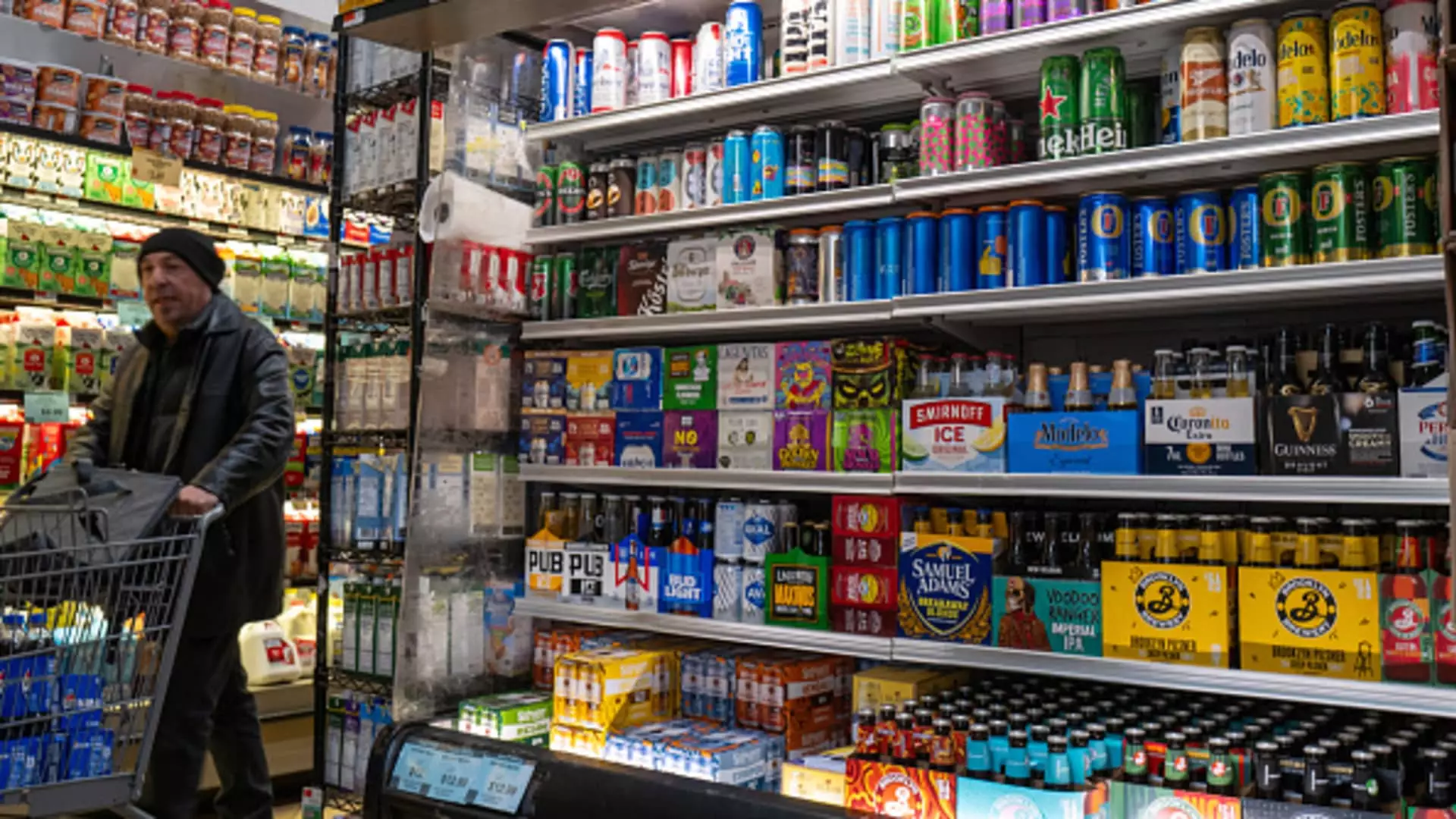In a critical advisory issued by the U.S. Surgeon General Dr. Vivek Murthy, the relationship between alcohol consumption and an increased risk of cancer has taken center stage. This recent alert serves to highlight not only the dangers associated with alcohol but also the need for immediate policy reforms aimed at mitigating these risks. The advisory distinctly notes that there is a robust connection between alcohol intake and over seven types of cancer, including breast, liver, and esophageal cancers. Most concerning is the evidence suggesting that even minimal drinking—at levels of one drink per day or less—can predispose individuals to various forms of cancer, such as those affecting the mouth and throat.
To combat these alarming statistics, Dr. Murthy has advocated for significant changes in public health policies. Among these recommendations is the proposal to institute more noticeable labeling on alcohol products, which would include explicit warnings about alcohol’s carcinogenic properties. This call for heightened awareness is not merely about advising adults; it’s about reshaping societal norms regarding alcohol consumption and looming cancer risks. The suggestion to re-evaluate current guidelines on acceptable alcohol consumption levels indicates a proactive approach towards addressing a question that is often under-discussed in health circles.
The recommended initiatives echo past anti-tobacco campaigns that saw a reduction in cigarette use due to increased public awareness and packaging warnings. Drawing parallels to these historic efforts, the Surgeon General emphasizes that a similar strategy could be effective in informing Americans about the dangers of alcohol. Dr. Murthy specifically urges the general population to consider the potential cancer risks associated with their drinking habits, emphasizing: “Alcohol is a well-established, preventable cause of cancer responsible for about 100,000 cases of cancer and 20,000 cancer deaths annually in the United States.”
Alcohol consumption has been identified as the third leading preventable cause of cancer, trailing only tobacco use and obesity. With around 741,300 alcohol-attributed cancer cases reported globally in 2020, the statistics are eye-opening. Alarmingly, alcohol-related cancer significantly diminishes the lifespan of those affected, with each case reducing life expectancy by an average of 15 years.
Despite these staggering numbers, public awareness appears to be lagging. According to the advisory, a substantial 72% of U.S. adults reported that they consumed one or more alcoholic beverages per week between 2019 and 2020, yet less than half of them were aware of the link between their consumption and cancer risk. This gap in knowledge presents an urgent need for educational initiatives aimed at clarifying the hazards of alcohol.
Interestingly, the trends regarding alcohol consumption are beginning to shift, especially among younger Americans. A growing cohort of individuals aged 18 to 34 are choosing to abstain from alcohol or opt for nonalcoholic alternatives. A Gallup survey released in August echoed this sentiment, revealing that around two-thirds of young adults perceive alcohol consumption as detrimental to health. This is a stark contrast to older demographics, where this statistic falls below 40%.
The shift in attitudes towards alcohol usage among younger demographics may presage lasting changes in public health — and it signals a turning point in cultural attitudes. While the Surgeon General’s advisory aims to target all adults, it is particularly relevant in addressing the priorities and preferences of the younger population, who may be more receptive to this message.
The urgent advisory from the Surgeon General acts not just as a warning, but as a clarion call for awareness, education, and reform. Rising cancer risk due to alcohol consumption must no longer be an overlooked public health issue. Through enhanced labeling, reshaped consumption guidelines, and an educated populace, the possibility exists to significantly reduce the incidence of alcohol-related cancers. Failure to act could sustain and even exacerbate the public health crisis — a situation that, ultimately, is preventable. Awareness is the first step; policy change and education must follow swiftly.

